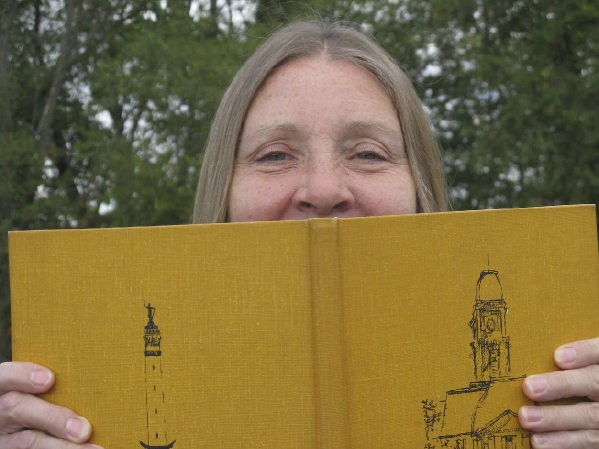A Witness to History

Reverend Barney Stone, the longtime pastor of the First Baptist Church, may have been the best known former slave to call Noblesville home, but he certainly wasn’t the only one.
In 1900 another Noblesville resident who’d been a slave, Lucy Washington, achieved a small measure of fame when various Indiana newspapers noted she was possibly the oldest person in the state.
Having been born into slavery, her exact age was unknown, but she was believed to have been 110 at that time.
Maybe.
When I researched her, I encountered an unusual amount of conflicting, and sometimes obviously false, information — and not all of it was connected to her life as a slave.
For example, when she passed away in 1901, many newspapers stated that she was 122 years old. (I doubt she managed to age from 110 to 122 in a single year.)
The longest and, I believe, most accurate account of her life ran in the May 18, 1900, Hamilton County Ledger. It’s a fascinating story.
Her original owner was a wealthy Virginian from the Richmond area named William Mayo. She appears to have been passed on to the Dade family at a fairly young age, however, possibly when Mayo’s daughter, Anne, married General Lawrence Taliaferro Dade.
At some point she married and had two girls, but I found very little about her family. She became separated from her husband while still a young woman and she never saw him again. The daughters both died long before she did.
Sometime prior to the Civil War, the Dades (or whoever owned her then) moved from Virginia to Kentucky and she was taken along. She said she was made to cover the entire distance on foot, despite being “well advanced in years.”
Around 1870, she went to live with her granddaughter, Mary Bassett, and Mary’s husband, Reverend Miles Bassett.
The family moved to Noblesville’s Federal Hill area around 1895 when Reverend Bassett came here to preach in the First Baptist Church.
The Ledger noted that several historic events Mrs. Washington witnessed during her lifetime tended to reinforce the case for her being 110 in 1900.
For one thing, she was present when the Richmond Theatre in Richmond, Virginia, burned on December 26, 1811, a tragedy in which 72 people died.
When the British threatened to take Richmond during the War of 1812, she helped the family she was serving (possibly the Dades) pack up their household goods and escape up the James River.
According to the Ledger article, she nursed a relative of her master in President James Madison’s home. Although no time frame was given, I’m guessing that master may have been General Dade because Dade knew Madison well.
Apparently, Mrs. Washington knew Madison fairly well, too. She mentioned that he had three brothers, one of whom she described as a “habitual drunkard.”
She also recalled seeing the Marquis de Lafayette during his 1824-1825 tour of the United States.
The Ledger observed in 1900 that Mrs. Washington was in good health for her age, pointing out that she’d never used any form of tobacco and that she had her “second eyesight” which allowed her to sew without needing glasses.
(For some inexplicable reason the article also included the fact she never wore a corset except for the night she was married!)
Sadly, a little over a year after the Ledger story ran, she fell down a stairway while carrying a basket of clothes (or a basin of water, depending on the source.)
She never really recovered from her injuries and died a couple of months later. By the way, Mrs. Washington can claim another distinction — she was the great-great grandmother of noted African American author and lawyer, Cyrus Colter.
Paula Dunn’s From Time to Thyme column appears on Wednesdays in The Times. Contact her at younggardenerfriend@gmail.com
